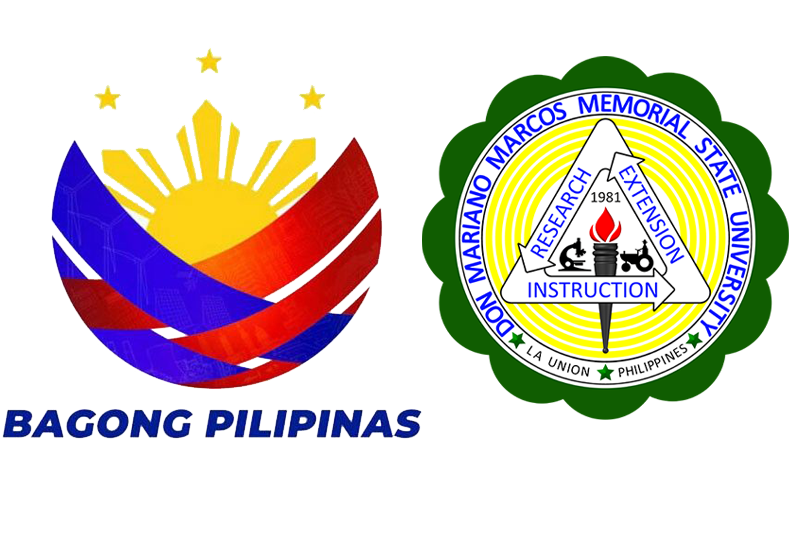
MOA signing with DMMMSU-NLUC Chancellor, Dr. Junifer Rey E. Tabafunda 
MOA signing with DMMMSU President, Dr. Jaime I. Manuel, Jr.
DMMMSU tied up with DOST-PCAARRD for the implementation of the SciCAT (Science and Technology-based Convergence of Agriculture and Tourism) Farm Development Project in La Union on June 29, 2020. Rocapor’s Farm Learning Site and School for Practical Agriculture in Barangay Tabtabungao, Rosario, La Union was the identified project partner and beneficiary farm for the project.
SciCAT is the result of technological convergence to improve productivity and capacity for sustainable farming practices while showcasing its beauty and attraction in scenery and unique experiences through recreational activities that will captivate curiosity and excitement among tourists (PCAARRD Writeshop Materials 2018).
Under the leadership of Prof. Lilito D. Gavina, Project Leader and University Director for Planning and Development, DMMMSU has established a partnership with Rocapor’s Farm which is owned by Mr. Rolando M. Rocapor, an accredited DA-ATI Magsasakang Siyentista (Farmer-Scientist). A Memorandum of Agreement (MOA) for the two-year duration of the project has been signed by DMMMSU and Rocapor’s Farm. Other members of the Project Team are Dr. Florendo Q. Damasco Jr., University Director for Auxiliary Services and Ms. Michelle Ann L. Cabiladas, faculty member of Institute of Agribusiness Management as Project Staff, Ms. Karen A. Ballada, NLUC Head for Extension, and Ms. Evalyn C. Manuel as Project Assistant.
As one of the project’s key components on the provision of capacity building/training opportunities, the Training on Technology Circulation for Organic Agriculture has been conducted at Rocapor’s Farm on July 15-17, 2020 wherein 27 farmers within the municipality of Rosario were gathered as participants. The participants are members of the FAITH (Farmers Association for Innovative Technology and Harvest) in Rosario and came from Barangays Carunoan East, Bani, Parasapas and Tabtabungao. During the three-day training, lectures on the concepts of various practices on organic agriculture were coupled with hands-on activities on the preparation of organic concoctions and fertilizers. The outputs of the activities were deemed useful for the farmers’ primary production activities such as cattle and young corn production. At the end of the training, the farmers prepared and presented their action plans for their farms utilizing the knowledge they have gained from the training.
The training was a jumpstart for the implementation of the SciCAT Farm development of Rocapor’s Farm. Further trainings are on deck to be conducted such as beekeeping. Moreover, with the assistance of the UP-Institute for Small Scale Industries, the project will be looking into the physical development of certain farm structures and enhancing its social media promotions. (mcabiladas)

The participants during their hands-on activity. 
The participants and their training outputs.

The participants during the Training on Technology Circulation for Organic Agriculture. 
The participants during the Training on Technology Circulation for Organic Agriculture.
